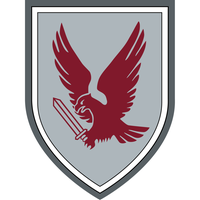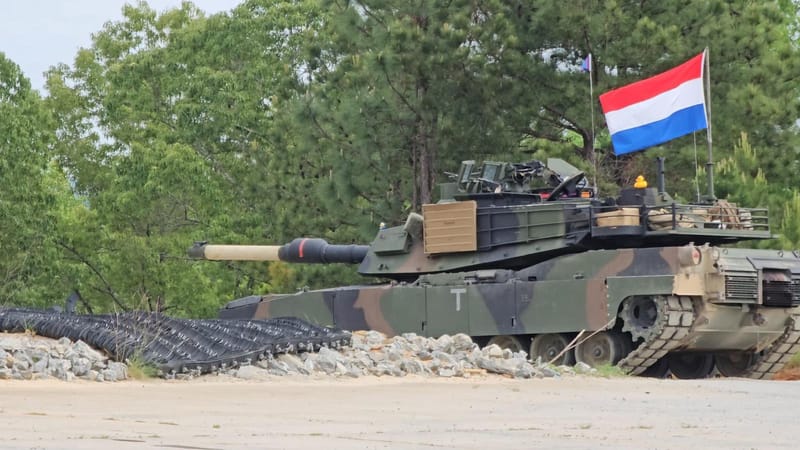German Bückeburg Helicopter Command: Modernization and Operational Shift
Starting in November 2024, up to 82 H145M helicopters will be integrated into the force. The first units are expected to arrive at Achum Airbase on November 20, 2024, with approximately two dozen allocated to the International Helicopter Training Center (IHTC) in Bückeburg.

The German Army's Helicopter Command (KdoHubschr), stationed at Jäger Barracks in Bückeburg, is advancing its modernization efforts with a significant upgrade to its fleet. Starting in November 2024, up to 82 H145M helicopters will be integrated into the force. The first units are expected to arrive at Achum Airbase on November 20, 2024, with approximately two dozen allocated to the International Helicopter Training Center (IHTC) in Bückeburg. This modernization supports the command’s focus on enhancing combat readiness and operational resilience, as reported by Schaumburg-Lippische Tageszeitung.
Formally established on October 1, 2020, and fully operational by April 2021, the Helicopter Command, led by Brigadier General Volker Bauersachs, centralizes all Army Aviation operations to improve force cohesion and effectiveness. The command, overseeing over 4,400 personnel across helicopter regiments and training centers in Germany and France, coordinates leadership, training, and deployment for both manned and unmanned aircraft, ensuring seamless integration of new capabilities as modernization continues.
Key Takeaways
- Modernization Timeline: Corps-support role by 2025, brigade restructuring by 2026.
- Combat Upgrade: 82 H145M helicopters for advanced combat readiness.
- NATO Alignment: Enhanced support for NATO’s defense framework and global security stability.
Implications for NATO and Global Security
The modernization of the Bundeswehr’s Helicopter Command is a strategic step forward, aligning with Germany’s commitment to NATO defense and global stability. By expanding its combat and response capabilities, the Bundeswehr positions itself as a key player in addressing evolving security threats. The integration of H145M helicopters will provide Germany and its NATO allies with advanced, adaptable resources for joint operations, enhancing regional stability and deterrence.

Key Modernization Steps for the Bundeswehr Helicopter Command
1. Corps-Support Role by 2025
In support of modernization, an Army Aviation unit within the Helicopter Command will begin operating as a corps-support force starting in 2025. This shift strengthens Germany's defense posture within NATO by ensuring a more structured, rapid deployment of air assets in response to global security challenges. Bauersachs emphasizes that continual readiness must become the standard, preparing the unit to operate in high-readiness states for potential conflict.
2. Introduction of H145M Light Attack Helicopters
The Bundeswehr will receive up to 82 H145M helicopters from Airbus Helicopters, with around two dozen allocated to the International Helicopter Training Center (IHTC) in Bückeburg.
- Delivery Schedule: The first two H145M helicopters are scheduled for introduction on November 20, 2024, at Achum Airbase, with the additional 21 units to be delivered in phases until 2026.
- Bridging Solution: The H145M will temporarily serve as an attack helicopter until a long-term replacement for the Tiger helicopter is finalized.
3. Restructuring into a Brigade for Enhanced Combat Resilience by 2026
By 2026, the Helicopter Command plans to reorganize as a brigade. This restructuring will support better resource allocation, mission planning, and command efficiency, essential for the Bundeswehr’s ability to respond effectively to complex, multi-domain threats, strengthening both national security and NATO interoperability.
Strategic Roles and Future Outlook
The Helicopter Command’s duties span combat readiness, training, and operational integration across national and NATO defense efforts. The unit plays a significant role in NATO’s defense framework, preparing helicopter forces to support high-intensity NATO Corps operations by 2025. By the 2030s, the German Army Aviation Corps aims to become a technologically advanced force, leveraging manned and unmanned platforms for coordinated, multi-domain operations against peer competitors. Bauersachs underscores the need for continual updates to defense planning to address evolving threats, ensuring the corps remains a core asset in NATO’s collective defense.
Sources: Schaumburg Lippische Tageszeitung




